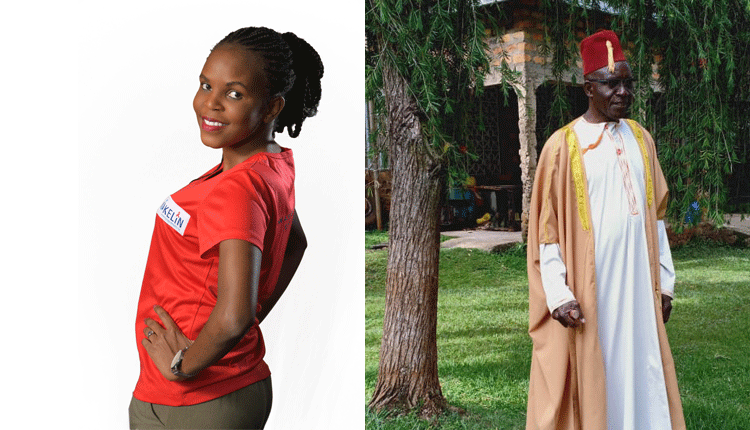Using alternative dispute resolution for land rights

It took five years for Rhoda Nafula Wekesa to get back her land, and another 12 years to acquire the title deed after the death of her husband in 2004.
His demise marked the beginning of a protracted and dispute between her and her in-laws.
Through the intervention of the Luo Council of Elders Rhoda secured the two-acre piece of land under dispute in 2009.
Early this year, the 45-year-old acquired the title deed after successfully registering the land under her name.
The resident of Ahero, Nyando Sub-County, Kisumu is not alone. Widows in Homabay and Kisumu counties are now resorting to Alternative Dispute Resolution (ADR) through the Luo Council of Elders to resolve land disputes and secure their land rights.
From battling with family members keen on denying them land that is rightfully theirs to community members who misinterpret culture to disinherit vulnerable widows, these women have found recourse to secure their land rights.
Cultural barriers
Barely weeks after her husband died, Rhoda’s in-laws informed her she needed to identify a man within the family to inherit her— in line with a Luo customary practice that entails a brother or a relative of a deceased husband taking over as the new head of the deceased’s home.
At the time of her husband’s death Rhoda was three months pregnant with their last-born child and taking care of her older two children all aged below three years.
“I’m a Luhya married to a Luo and so the idea of being inherited did not make sense,” she says.

Soon after, her house was demolished when she failed to comply, and she was sent away with her children. She ended up in a rental house in Ahero town.
“My in-laws said I would bring bad omen to the family,” says Rhoda.
According to Luo tradition, couples are expected to engage in sexual activities preceding specific agricultural and social events such as cultivating, planting, or harvesting, building homes, weddings, funerals, or other significant social events. Even widows are not left behind.
In 2009, Rhoda was among the first women to have their land rights cases resolved through the Luo Council of Elders under a programme by KELIN, a nongovernmental organisation that protects human rights.
It was resolved that the land belonged to her. KELIN resettled her on the land in 2010 and helped her construct a house.
Smooth running
Joseph Apollo Bwana, chief elder, Luo Council of Elders says land disputes between widows and their in-laws are common and mostly happens due to disregard of culture.
In Luo culture when a man dies, the wife assumes full rights to ownership of the land and property, notes Joseph.
He points out that some customary practices have been misinterpreted thus denying widows their land rights.
Wife inheritance was aimed to secure the family of the deceased. However, today people have sexualised the practice watering down its significance.
“The inheritor is supposed to oversee the smooth running of a home not necessarily have sexual relations with the woman. They have no right to a widow’s property,” he says.
Joseph is among six elders trained by KELIN on ADR. Use of this mode is part of efforts to clear backlog of cases in courts and offer representation to those that cannot afford legal fees.
Article 159 of the Kenyan Constitution 2010 mandates the Judiciary to promote it in the administration of justice.
“We have trained them on laws that govern land ownership, documentation of cases and rights of women to property,” says Jessica Oluoch, legal expert, KELIN.
Through this initiative, close to 900 cases on land rights for women have been resolved in Homabay and Kisumu counties.
High cost
Many women faced with land rights cases often shy away from going to courts due to exorbitant legal fees.
Those who succeed are ostracised and disowned by their community. ADR is helping bridge this gap and giving many women access to justice
The constitution provides for equal rights to property for parties in a marriage at the time of the marriage, during the marriage and upon dissolution of the marriage.
Kenya has also enacted laws that aim to secure women`s right to own property including the Marriages Act that calls for registration of all marriages, granting women a legal basis to claim property ownership.
The Land Act provides allows both partners in marriage to consent to the sale or lease of their land and home while the Matrimonial Property Act protects a woman`s property acquired during marriage.
The Law of Succession Act grants equal inheritance rights to both female and male children. Yet gaps in these laws have caused many women to miss out on land rights.
ADR has also reduced the amount of time it takes to settle a case. Joseph says that it takes less that five days to hear and give a ruling on a land case.
Often these cases are brought to elders as a last resort after efforts to solve them at home and at the clan level have failed.
Today, Rhoda has become a widow champion on land rights and spends her days educating widows on ADR and referring them to the elders for assistance.
She also volunteers as a secretary, taking minutes during the land dispute proceedings.



